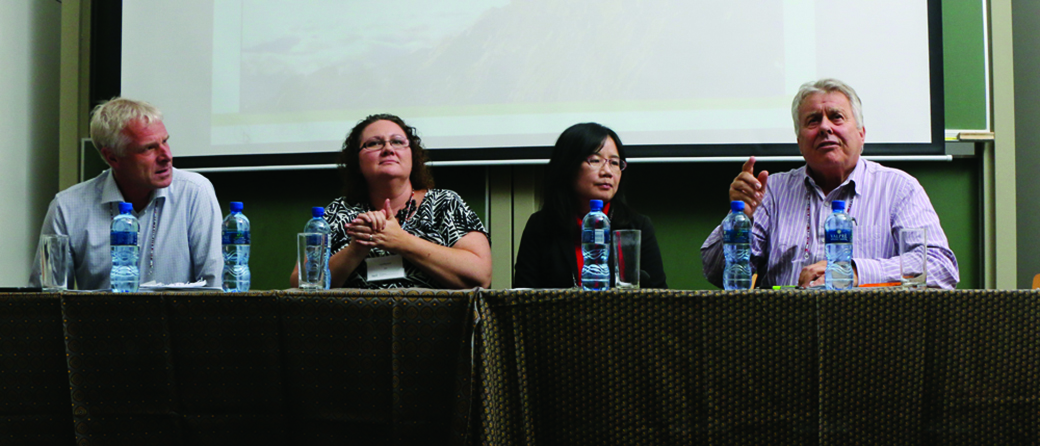
USD professors present research at South African conference
Two USD professors presented their research at the fifth International Society for Child Indicators in Cape Town, South Africa, on children’s well-being this past September.
About 300 people representing 36 countries attended the conference, including USD’s Lisa Newland, professor of human development and educational psychology, and Soonhee Roh, assistant professor of social work.
The research presented was a part of the Children’s Worlds project, a worldwide research survey that aims to improve and learn about children’s well-being and lives.
Newland’s research focuses on children’s well-being in South Dakota. She sent out a survey to different schools around the state, and about 2,000 children and adolescents participated.
“We tried to get as wide of a range as we could,” she said. “We also got some rural and urban schools. The sample that we ended up with may not be 100 percent representative of South Dakota, but it’s not just focused in one area of the state.”
Newland’s study focused primarily on 3rd, 5th and 7th graders. She began working on the project during spring 2012 and came back to it in the spring of 2015, she said.
Out of the many factors of well-being the survey evaluated, one stood out as particularly important, Newland said.
“What we found from the pilot study and the full study is that relationships are as important if not more important than the context that they are in,” Newland said. “For example, in our paper published in the Journal of Social Service Research, children’s family relationships were a stronger predictor of children’s life satisfaction than were home environment quality or parent involvement. Likewise, relationships with teachers were a stronger predictor than general school climate. What this means is that relationships matter a lot to children in terms of their feelings of well-being.”
Newland said this research is effective not only because this is the first time they’re asking children directly about their emotions, but also because it’s shared around the world.
“You have a year to analyze your data and after that year is up, the rest of the world has access to your data,” she said. “It’s an effective way to do cross-cultural research. You get to see what is similar with children in different countries and what is unique as well.”
Roh, who also presented at the conference, had a more targeted research project. Roh’s work focused on childhood victimization to adult re-victimization and psychological well-being in Native Americans in the United States. Essentially, Roh was connecting being a victim of violence during childhood to possibly being violent in the future.
“Recent studies showed that victims of child abuse had an increase of later abusing someone else,” Roh said. “That was the background of my study. I collected data on general well-being among American Indians and I did secondary data analysis. I focused on intergenerational transitional violence.”
Roh recruited 480 Native Americans in South Dakota for the study. The ages for females ranged from 18 and older and 40 and older for males.
“American Indians tend to have a lot of violent issues, but they were really underreported,” Roh said. “I collected some data on child abuse and child maltreatment, depression and violence. My study was to connect childhood maltreatment to re-victimization in adulthood. I had adults reflect back onto their own childhood in order to see the connection between the two variables. This study is very significant because a comprehensive study of the impact of intimate partner violence against American Indians is still lacking in the Northern Plains.”
Along with presenting their research, Roh and Newland were able to experience aspects of South African culture like music and different landmarks.
“The people there are so friendly,” Newland said. “I think a lot of people think that South Africa is a violent place but there were always people willing to help us and were very kind.”
They also noticed a large amount of diversity among the people there, Roh said.
“It was amazing to see people from all over the world,” she said. “It is a very diverse place. You were able to make a lot a friends globally.”
Both have plans to continue their research within the Children’s World program.
“It’s important to know what predicts children’s subjective well-being, so that we can use that information to inform prevention and intervention programs,” Newland said.


